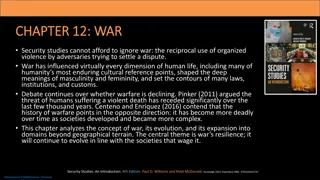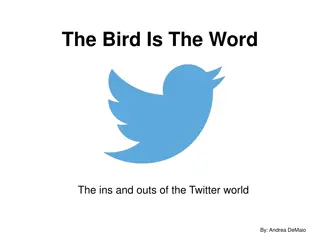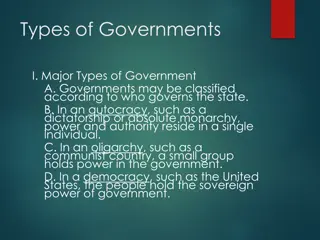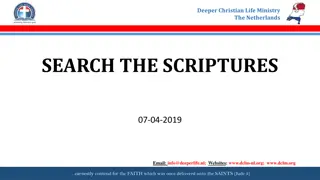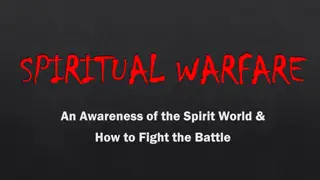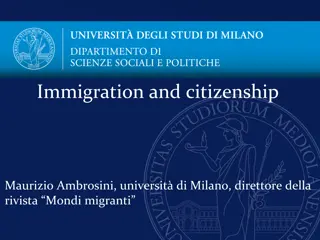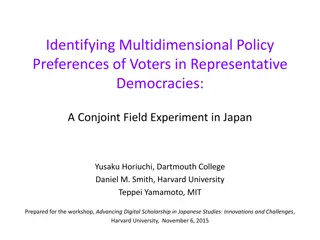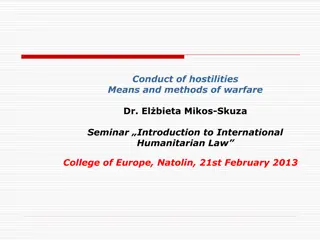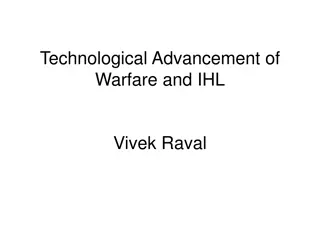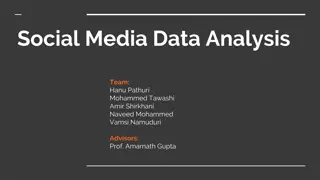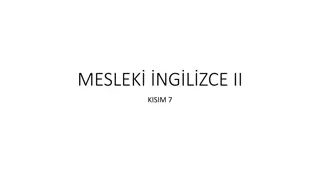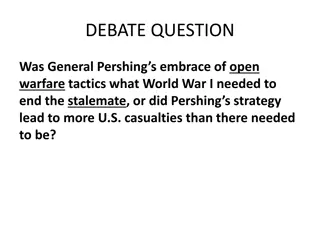Tyrants on Twitter: Safeguarding Democracies from Information Warfare
Exploring the central argument of the new Cold War with China, focusing on military, economic, and information competition. The discussion addresses the threat posed by Chinese and Russian information warfare to Western democracies, emphasizing the need for regulatory harmonization among leading Western nations to protect democratic values. Visual data illustrates the evolving landscape of democratic and autocratic states post-Cold War and the resurgence of authoritarianism. Insights into information warfare tactics of Russia and China, as well as instances of Russian interference in global affairs, are highlighted. Additionally, comparisons of social media engagement between Chinese and US media companies provide a glimpse into foreign influence operations.
Download Presentation

Please find below an Image/Link to download the presentation.
The content on the website is provided AS IS for your information and personal use only. It may not be sold, licensed, or shared on other websites without obtaining consent from the author. Download presentation by click this link. If you encounter any issues during the download, it is possible that the publisher has removed the file from their server.
E N D
Presentation Transcript
Tyrants on Twitter: Protecting Democracies from Information Warfare Friday, May 27, 2022
Central Argument New Cold War with China Compete in three areas Military Economic Information Competition (need to win this) US is subsidizing Chinese/Russian information warfare on social media Major strategic mistake
Central Argument (cont.) Chinese/Russian information warfare poses a significant threat to Western democracies. Contributes to problem of democratic decay Need to regulate social media to protect democracies. Need regulatory harmonization among leading Western democracies. Power to regulate is a strategic asset. We are squandering that asset.
THE POST COLD-WAR ERA Democratic States Autocratic States 0.55 0.50 0.45 0.40 0.35 0.30 0.25 0.20 1990 1992 1994 1996 1998 2000 2002 2004 2006
RESURGENT AUTHORITARIANISM Democratic States Autocratic States 0.36 0.34 0.32 0.30 0.28 0.26 0.24 0.22 0.20 2005 2007 2009 2011 2013 2015 2017 2019
What is Information Warfare? Foreign Influence Operations Organized Social Media Manipulation Information Warfare
Info War Tactics Russia is a hurricane. China is climate change. Russia primarily negative and destructive. China more positive. Slow and gradual. Reshape liberal international order.
Russian Interference 2016 US election Mueller: Sweeping and systematic May have swung outcome. At least 20 other EU/NATO countries since 2014. Goal is to weaken both NATO and the EU. Partial success.
Likes on Facebook Chinese Companies US Companies CGTN, 105 million CNN, 33.5 million China Daily, 94 million Fox, 18.6 million People s Daily, 84 million NYT, 17.4 million Xinhua, 80 million WSJ, 6.5 million Global Times, 57 million
WeChat China uses WeChat for surveillance and censorship in Western democracies. China censors communications between Western politicians and their ethnic Chinese constituents.
Asymmetric Warfare Russia/China exploit information warfare to undermine democracy and promote autocracy. We can t do to them what they do to us: Closed information environments No free and fair elections Need better defenses
Shift the Attack-Defense Ratio Right now, foreign agents can create ten new fake accounts in less time and for less cost than it takes for companies to block one fake account. Goal is to shift the attack-defense ratio: Make it much more costly and time-consuming to create new fake accounts Make it cheaper and easier to detect and block fake accounts
Regulatory Proposal Create an Alliance for Democracy (35-40 states) Free speech for nationals of Alliance states Ban Chinese and Russian agents from major social media platforms Exemption for benign state agents Disclaimer rules warn citizens of Alliance states when source is national of non-member state Social media registration system Exemption for private accounts Safeguards to protect privacy and data security
Registration System Require all social media users to register public accounts. Declare nationality and other identifying information. Home gov t confirms that declared nationality is true and accurate. Coordination with other democratic governments.
Weighing Costs and Benefits Benefits Tactical make it more costly & time-consuming for foreign agents to create fake accounts Tactical limit spread of propaganda/disinfo Strategic halt or reverse democratic decay Costs Administrative costs and burdens Privacy/anonymity Chilling effect on free speech
Conclusion Adopt seemingly illiberal policies to defend liberal values. Ban and registration requirement are not actually illiberal. Government regulation is necessary to protect democracy.
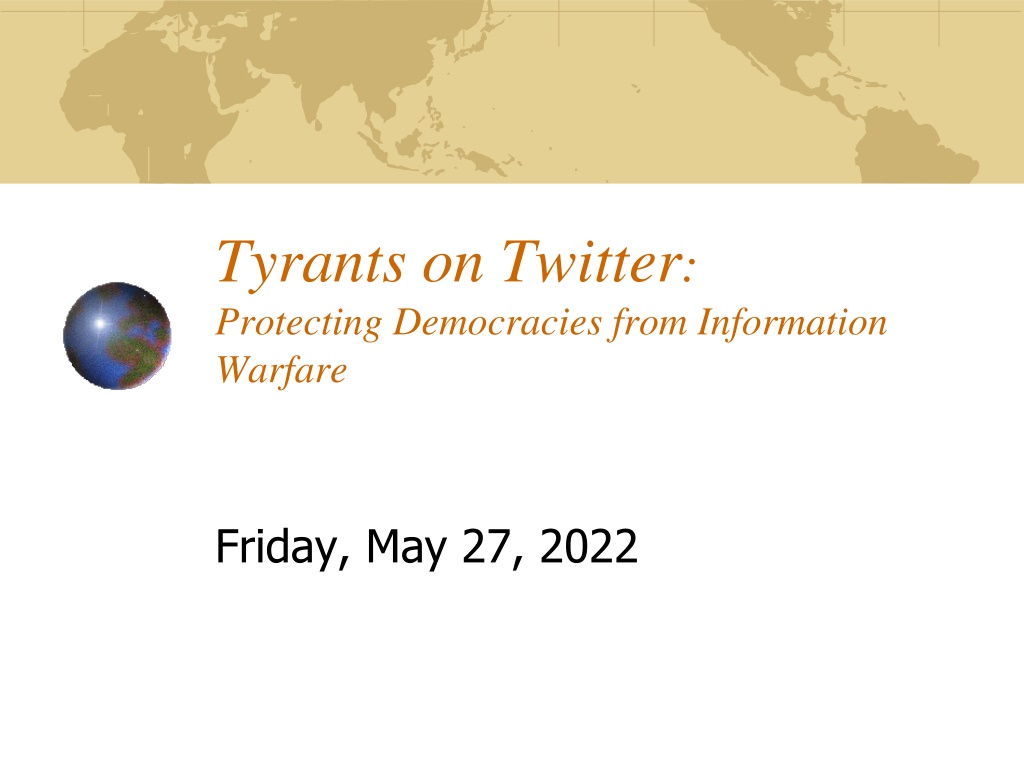
 undefined
undefined

